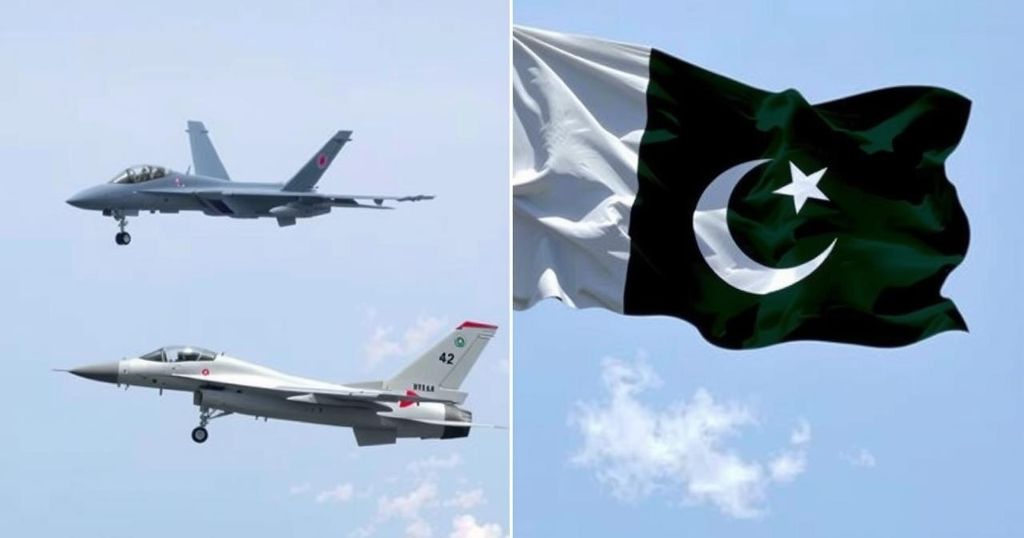India Condemns Pakistan’s Airstrikes in Afghanistan, Urges Accountability
India has condemned Pakistan’s airstrikes in Afghanistan that killed at least 46 civilians. These strikes, justified by Pakistan as counterterrorism operations, have met with strong condemnation from Afghanistan, which views them as violations of sovereignty. Amidst ongoing tensions, India reiterates its concerns about Pakistan’s military actions impacting regional civilian populations, highlighting a fraught geopolitical landscape.
India has firmly condemned the recent airstrikes conducted by Pakistan in Afghanistan’s Paktika province, which resulted in the tragic deaths of at least 46 civilians, including numerous women and children. The Indian Ministry of External Affairs (MEA) released a statement denouncing the loss of innocent lives and reiterated its opposition to any form of violence against civilians. MEA spokesperson Randhir Jaiswal emphasized, “We unequivocally condemn any attack on innocent civilians,” while highlighting Pakistan’s history of attributing its internal issues to neighboring countries and recognizing the Afghan government’s strong condemnation of the strikes.
The airstrikes occurred during the night of December 25/26, 2024, when Pakistani military aircraft targeted various locations within Paktika, especially the Barmal district. The majority of the victims were refugees fleeing from military operations in Pakistan’s northwest. Afghan authorities reported the airstrikes wounded multiple individuals, further exacerbating the humanitarian crisis. The Pakistani military characterized these operations as “intelligence-based anti-terrorist operations” aimed at eradicating terrorist sanctuaries of the Tehreek-e-Taliban Pakistan (TTP). However, Kabul quickly dismissed this rationale, asserting that civilians, not insurgents, were primarily targeted.
In the aftermath, Afghanistan summoned Pakistan’s ambassador to lodge an official protest, condemning the infringement of Afghan sovereignty. The Afghan Foreign Ministry declared, “Afghanistan will not accept any violation of its territory under any circumstances,” warning that such actions could adversely impact bilateral relations. Furthermore, the TTP, recently claiming responsibility for a lethal suicide bombing in Pakistan, escalated its rhetoric by asserting that the airstrikes resulted in even higher civilian casualties than reported.
India’s condemnation represents an extension of its long-standing concerns regarding Pakistan’s military transgressions and their ramifications on neighboring civilian populations. Mr. Jaiswal stated, “It is an old practice of Pakistan to blame its neighbours for its own internal failures,” reflecting India’s critical stance on Pakistan’s destabilizing activities in the region.
Pakistan’s reaction remains muted concerning the international outcry, although its Interior Minister lauded the security forces for their counterterrorism efforts without addressing the airstrikes specifically. Meanwhile, the ongoing tensions between Pakistan and Afghanistan have been reignited following these events, highlighting their complicated relationship characterized by mutual accusations and security dilemmas.
This incident exemplifies the fraught nature of relations between Pakistan and Afghanistan, particularly concerning counterterrorism strategies and issues of sovereignty. India’s condemnation shines a light on regional security dynamics, emphasizing the necessity of respecting national borders and protecting civilian lives in conflict situations. As developments unfold, the implications of the airstrikes will likely resonate throughout the region, complicating an already fragile geopolitical landscape.
The airstrikes by Pakistan on December 25/26, 2024, targetting civilian areas in Afghanistan’s Paktika province, marked a significant escalation in hostilities in a historically volatile region. Such military actions are often justified by Pakistan as necessary counterterrorism operations against groups like the TTP, which has been accused of launching attacks from Afghan territory. However, these operations have raised widespread condemnation due to the heavy toll on civilian lives, particularly women and children, raising critical questions about sovereignty, civilian safety, and the ethics of military engagement in civilian areas. The ongoing tensions between Pakistan and Afghanistan reflect deep-seated issues regarding border security, counterterrorism cooperation, and mutual accusations of harboring insurgents. India’s reaction underscores its strategic interests in regional stability.
In summary, India’s unequivocal condemnation of Pakistan’s airstrikes in Afghanistan highlights the serious implications for civilian safety and the principle of sovereignty in the region. The attacks, which resulted in considerable loss of life, have drawn harsh responses from Afghanistan and have strained the already fragile relations between the two nations. As the situation evolves, the potential consequences of these actions for bilateral relations and regional security remain significant, warranting close international scrutiny and diplomatic engagement to prevent further escalation.
Original Source: www.financialexpress.com








Post Comment